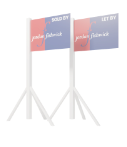Getting a mortgage can be stressful. There is a lot to learn, and a lot of factors to choose between. To help get the perfect mortgage deal, you need to understand the mortgage process.
With our simple guide, we’ll help you through the process from choosing between mortgage lenders to applying for a mortgage to getting your formal mortgage offer.
Choosing a Mortgage Lender
You need to choose the right mortgage lender for you. You might want to use the same bank that you use for your regular account. However, you don’t need to stick to the same lender. One good way to choose the right lender for you is a price comparison site. You might also want to have a chat with a professional mortgage advisor to get a feel for how the lender would work with you.
When to Apply for a Mortgage
You can’t buy a home without a mortgage, but how do you get a mortgage without a house? The answer is a mortgage in principle. It is usually best to get your agreement in principle as early as possible – even before you start house hunting in all seriousness.
Your mortgage lender will usually run affordability checks, which can take a few weeks, so it is best to start the mortgage in principle process as early as possible.
Completing the process is usually simple, and a good precursor to completing your formal mortgage application. Being ready and waiting with a mortgage agreement may put you ahead of the competition for your dream home.
What are Mortgage Interest Rates?
You don’t just borrow the exact amount you need, and repay that amount. Your mortgage lender will charge interest. There are many different types of interest rates – but primarily you will see:
Fixed Rates: Your mortgage interest rate and your monthly payments stay the same for the length of your deal. This is not impacted by market interest rates. Your deal will run for a set period of time, and then need to be renegotiated after this set period of time.
Variable Rate: Your mortgage interest rate is set to match the national market interest rate – it can go up and down, as can your mortgage payments.
How much Mortgage can I afford?
Different lenders will offer you different amounts of money. They need to calculate how much you qualify for. Different lenders will run affordability checks on you to check how much they are willing to lend you. Generally, most lenders will offer you a mortgage calculator to determine how much they are willing to offer you – however, this can be sometimes be changed in the formal mortgage application process.
What Mortgage Fees will I Pay?
There are a range of potential fees that different mortgage lenders might request. These vary from lender to lender, but most often they might include:
- Arrangement fee
- Booking fee
- Valuation fee
- Transfer fee
- Account fee
- Broker fee
How to get the best Mortgage Deal
You should compare the mortgage offers available to you, and decide on what is important to you. Different brokers will offer different terms, which might be more or less advantageous to you. It might also be important to you to use the same bank or lender that you have used before – so that your bank statements are more easily aligned.
Should I use a Mortgage Broker?
A mortgage broker can help you find the perfect deal for you. They often have access to a broader range of deals than banks, and can offer you mortgages not available on the open market.
A mortgage broker is often a good bet for people who have had other issues with finding a mortgage. These people might have poor credit history or be self-employed.
How to Go Through a Mortgage Application
You will need a number of pieces of documentation to apply for a mortgage.
- Proof Of Identity – A driving license or passport. Make sure the address on your driving license is up to date.
- Proof Of Address – At least two documents as proof of address. This can include a bill, bank statement or credit card statement. This must be dated within three months, and your name needs to be correct.
- Bank Or Credit Card Statements – Statements from the last three to six months. They are required to give information on your outgoings, as well as your financial situation.
- Proof Of Employment – You may need a contract, P60 form or other form of formal identification if you are self employed or informally employed.
Your Mortgage Offer
Assuming everything is in order, you should receive a formal mortgage offer from the bank or lender. This will usually last 6 months, so make sure you are at the right stage of the process.
Disclaimer: This article is for informal and general advice only. For full and proper financial advice to fit your circumstances, please seek the advice of an independent advisor.







